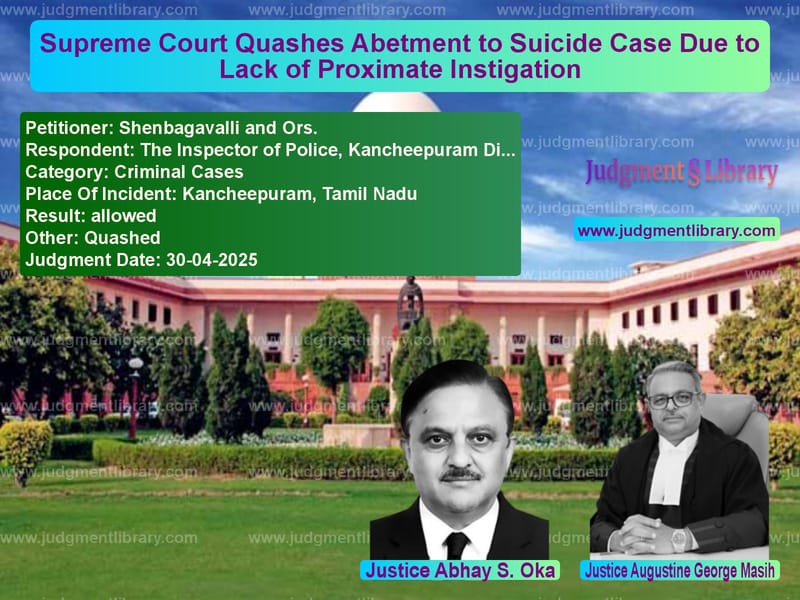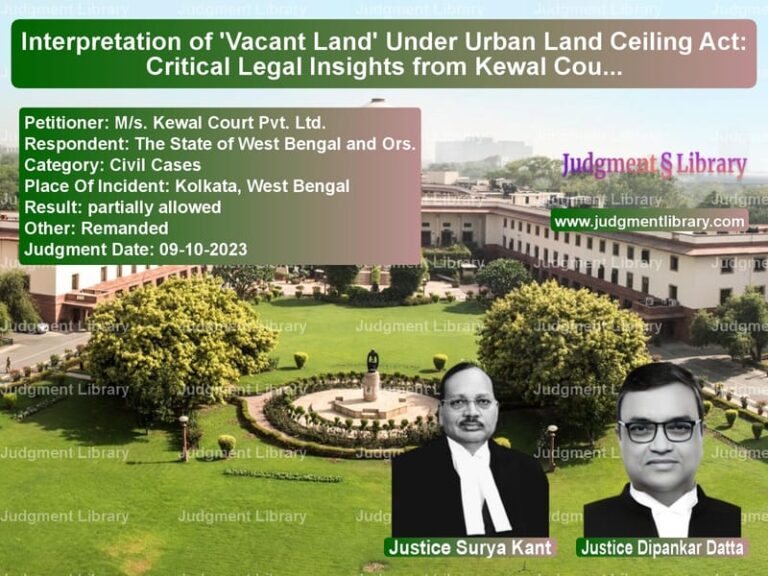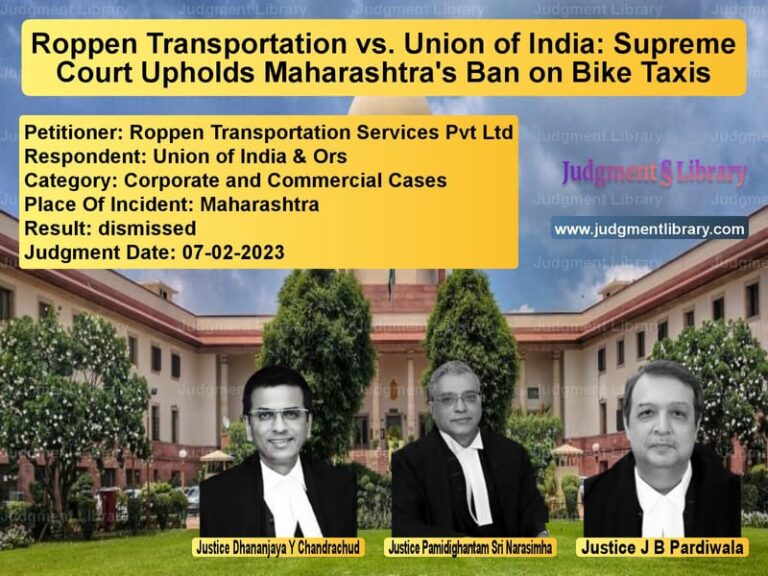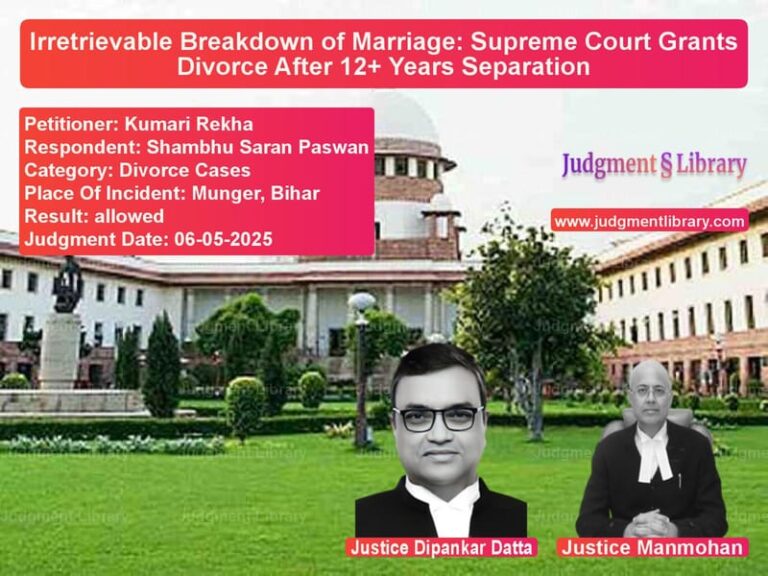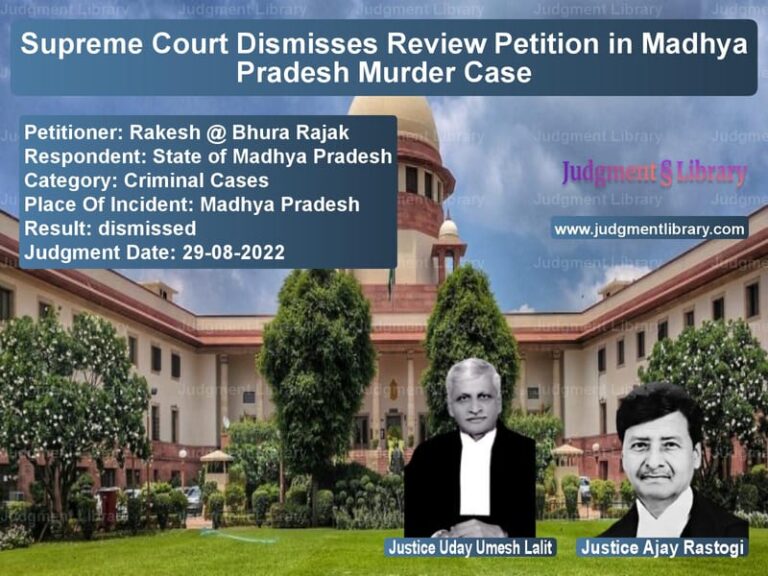Supreme Court Quashes Abetment to Suicide Case Due to Lack of Proximate Instigation
The Supreme Court of India recently delivered a significant judgment in the criminal appeals Shenbagavalli and Ors. vs. The Inspector of Police, Kancheepuram District and Anr., setting aside the charges under Section 306 IPC (abetment of suicide). The judgment, pronounced on April 30, 2025 by Justices Abhay S. Oka and Augustine George Masih, provides crucial clarity on the legal requirements for establishing abetment of suicide under Indian law.
The case involved a tragic incident where Dinesh, an engineer, committed suicide on December 9, 2013, allegedly due to harassment by his wife Pushpakalashree (Accused No. 7) and her relatives (Accused No. 1-6). The prosecution’s case was primarily based on torn diary pages containing a suicide note, which described an altercation on November 10, 2013 where the accused allegedly abused the deceased, called him impotent, and threatened to file false dowry cases.
The appellants’ counsel argued that: ‘the alleged suicide note does not specify the date on which it was written… there has been no further contact with them [after November 11]… there appears to be no provocation or instigative act in close temporal proximity to the incident’. They relied on precedents including Mahendra Singh v. State of M.P. and Ude Singh v. State of Haryana to contend that mere allegations of harassment without proximate instigation cannot constitute abetment.
The Court meticulously analyzed the legal requirements under Section 306 IPC read with Section 107 IPC, emphasizing that: ‘the essential ingredients of the offense under Section 306 IPC are (i) the abetment; (ii) intention of the accused to aid and instigate or abet the deceased to commit suicide’. The judgment particularly highlighted that ‘there should be evidence suggesting that the accused intended by such act to instigate the deceased to commit suicide’.
In its analysis, the Court noted several crucial gaps in the prosecution’s case: the one-month gap between the alleged harassment and suicide; lack of any contact during this period; absence of forensic proof that the deceased wrote the suicide note; and no evidence of continuous harassment or active instigation proximate to the suicide. The Court observed: ‘Merely because the act of an accused is highly insulting to the deceased by using abusive language would not by itself constitute abetment of suicide’.
The judgment extensively referenced its earlier decision in Ude Singh v. State of Haryana, which held that ‘instigation means to goad, urge forward, provoke, incite or encourage to do an act… if the persons who committed suicide had been hypersensitive and the action of the accused is otherwise not ordinarily expected to induce a similarly circumstanced person to commit suicide, it may not be safe to hold the accused guilty’.
Ultimately, the Court concluded that allowing the prosecution to continue would amount to an abuse of process, as the essential ingredients of the offense were not made out. The judgment quashed the criminal proceedings against all appellants, setting aside the Madras High Court’s order that had refused to quash the chargesheet.
This judgment serves as an important precedent clarifying that allegations of harassment, without proof of proximate and active instigation intended to cause suicide, cannot sustain charges under Section 306 IPC. It reinforces the need for careful judicial scrutiny before subjecting individuals to criminal prosecution for abetment of suicide.
Petitioner Name: Shenbagavalli and Ors..Respondent Name: The Inspector of Police, Kancheepuram District and Anr..Judgment By: Justice Abhay S. Oka, Justice Augustine George Masih.Place Of Incident: Kancheepuram, Tamil Nadu.Judgment Date: 30-04-2025.Result: allowed.
Don’t miss out on the full details! Download the complete judgment in PDF format below and gain valuable insights instantly!
Download Judgment: shenbagavalli-and-or-vs-the-inspector-of-pol-supreme-court-of-india-judgment-dated-30-04-2025.pdf
Directly Download Judgment: Directly download this Judgment
See all petitions in Suicide Cases
See all petitions in Judgment by Abhay S. Oka
See all petitions in Judgment by Augustine George Masih
See all petitions in allowed
See all petitions in Quashed
See all petitions in supreme court of India judgments April 2025
See all petitions in 2025 judgments
See all posts in Criminal Cases Category
See all allowed petitions in Criminal Cases Category
See all Dismissed petitions in Criminal Cases Category
See all partially allowed petitions in Criminal Cases Category

